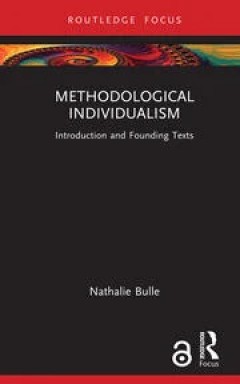Filter by

Delivering Effective Adventure Therapy: A Therapist’s Guide to Producing Tr…
Delivering Effective Adventure Therapy: A Therapist’s Guide to Producing Transformative Change for Clients provides effective interventions for enriching therapeutic techniques using experiential methodology infused with metaphor. Therapists continuously search for effective therapeutic interventions to engage clients in treatment and promote positive change. Adventure therapy overcomes the …
- Edition
- -
- ISBN/ISSN
- 9781032640303
- Collation
- -
- Series Title
- -
- Call Number
- -

Shaping the Future of IoT with Edge Intelligence: How Edge Computing Enables …
This book presents the technologies that empower edge intelligence, along with their use in novel IoT solutions. Specifically, it presents how 5G/6G, Edge AI, and Blockchain solutions enable novel IoT-based decentralized intelligence use cases at the edge of the cloud/edge/IoT continuum. Emphasis is placed on presenting how these technologies support a wide array of functional and non-functiona…
- Edition
- -
- ISBN/ISSN
- 9781032632407
- Collation
- -
- Series Title
- -
- Call Number
- -

Methodological Individualism: Introduction and Founding Texts
Originating in the late 19th century and becoming the subject of ongoing methodological debates in the social sciences, methodological individualism is a paradigm that focuses on understanding social phenomena through the actions and choices of individuals rather than through collective explanations. This book highlights its theoretical bases as defined and developed in the writings of its foun…
- Edition
- -
- ISBN/ISSN
- 9781032627021
- Collation
- -
- Series Title
- -
- Call Number
- -

Empowering marginalised women in remote Indian villages :an impact study
Saikia, Chalmers, Michael and Orrell explore the impact of social education on gender inequalities in rural Tamil Nadu where highland women’s lives are damaged by discrimination, marginalisation and deprivation. Social education refers to agent-oriented learning experiences focused on power relations designed to help oppressed people regain their humanity in the struggle for empowerment. The…
- Edition
- -
- ISBN/ISSN
- 9781003519409
- Collation
- -
- Series Title
- -
- Call Number
- -

Artificial Intelligence and Evaluation: Emerging Technologies and Their Impli…
Artificial Intelligence and Evaluation: Emerging Technologies and Their Implications for Evaluation is a groundbreaking exploration of how the landscape of program evaluation will be redefined by artificial intelligence and other emerging digital technologies. In an era where digital technologies and artificial intelligence (AI) are rapidly evolving, this book presents a pivotal resource for e…
- Edition
- -
- ISBN/ISSN
- 9781003512493
- Collation
- -
- Series Title
- -
- Call Number
- -

Rethinking the Concept of Waste and Mass Consumption: Preserving Resources th…
This book presents hard facts, drawn from extensive research, to highlight our unsustainable consumption of the Earth’s resources and the limitations of the UK’s current management of waste and recycling. Setting out a bleak picture of a world in which we are literally consuming our planet, the book explores the psychological, economic and capitalist drivers behind this behaviour. Controve…
- Edition
- -
- ISBN/ISSN
- 9781003504757
- Collation
- -
- Series Title
- -
- Call Number
- -

India Migration Report 2024: Indians in Canada
India Migration Report 2024: Indians in Canada is one of the first volumes to comprehensively examine and analyse the different facets of Indian migration to Canada. This volume: • Examines the comprehensive history of Indian migration to Canada, including the story of social, cultural, economic, and political integration, analysis of socio-economic characteristics, and evolving political s…
- Edition
- -
- ISBN/ISSN
- 9781003499787
- Collation
- -
- Series Title
- -
- Call Number
- -

Technical Innovation, solving the Data Spaces and Marketplaces Interoperabili…
In the third i3-MARKET series book we focus on the best practices and simplest software methods and mechanisms that allow the i3-MARKET backplane reference implementation to be instantiated, tested and validated even before the technical expert and developer communities decide to integrate the i3-MARKET as a reference implementation or adopted open-source software tools. The purpose of this boo…
- Edition
- -
- ISBN/ISSN
- 9781003498841
- Collation
- -
- Series Title
- -
- Call Number
- -

India Migration Report 2023: Student Migration
The India Migration Report 2023: Student Migration is one of the first books that attempts to comprehensively explore the various nuances of Indian international student migration factoring in multiple factors that influence the migration journey of Indian students. It also looks into other migration stories including internal and international returnees, various impacts of remittances, and mig…
- Edition
- -
- ISBN/ISSN
- 9781003490234
- Collation
- -
- Series Title
- -
- Call Number
- -

Cultural Models of Nature : Primary Food Producers and Climate Change
Drawing on the ethnographic experience of the contributors, this volume explores the Cultural Models of Nature found in a range of food-producing communities located in climate-change affected areas. These Cultural Models represent specific organizations of the etic categories underlying the concept of Nature (i.e. plants, animals, the physical environment, the weather, humans, and the supernat…
- Edition
- -
- ISBN/ISSN
- 9781351127905
- Collation
- -
- Series Title
- -
- Call Number
- -
 Computer Science, Information & General Works
Computer Science, Information & General Works  Philosophy & Psychology
Philosophy & Psychology  Religion
Religion  Social Sciences
Social Sciences  Language
Language  Pure Science
Pure Science  Applied Sciences
Applied Sciences  Art & Recreation
Art & Recreation  Literature
Literature  History & Geography
History & Geography